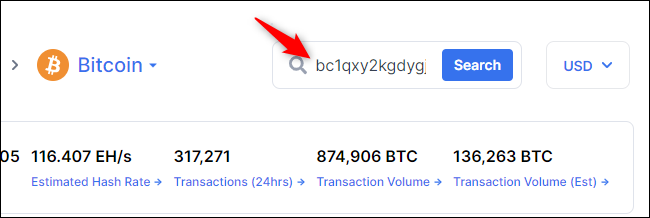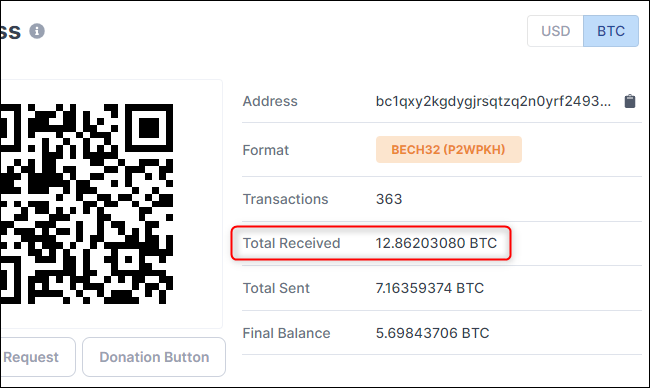Your identity may be private when you use Bitcoin, but an account's transactions aren't. If you know someone's Bitcoin address---the same number you'd use to send money to them---you can look up their transaction history and current account balance.
This is particularly interesting when dealing with scammers. For example, in the massive Twitter hack on July 15, 2020, many news organizations and individuals reported just how much money had been sent to the scammer's Bitcoin address. Here's how they discovered that number---and how you can do the same for any Bitcoin address.
To find this information, you'll have to examine the Bitcoin blockchain. It's a public, shared record of all the Bitcoin transactions occurring. The easiest way to access this information is through a website that makes the information available to you. We like Blockchain.com's Blockchain Explorer for this.
Simply visit the website, paste the Bitcoin address you want to get information about in the search field, and press Enter. You can choose which currency you
For example, Twitter's attackers used the following address:
bc1qxy2kgdygjrsqtzq2n0yrf2493p83kkfjhx0wlh
You'll see a list of transactions associated with that address.
As of the evening of July 15, the account had received a total of 12.86 Bitcoin and had sent 7.16 Bitcoin to other addresses.
To see the amount of money in US dollars, click "USD" at the top-right corner of the screen. (You can choose another currency from the drop-down box to the right of the search field.)
We can see that the account had received Bitcoin worth over $118,000,
Tools like this can also show you other details from the Bitcoin blockchain, including the current value of a Bitcoin account and information about transactions. The information is out there, and you don't have to download the entire Bitcoin blockchain yourself to find it.



